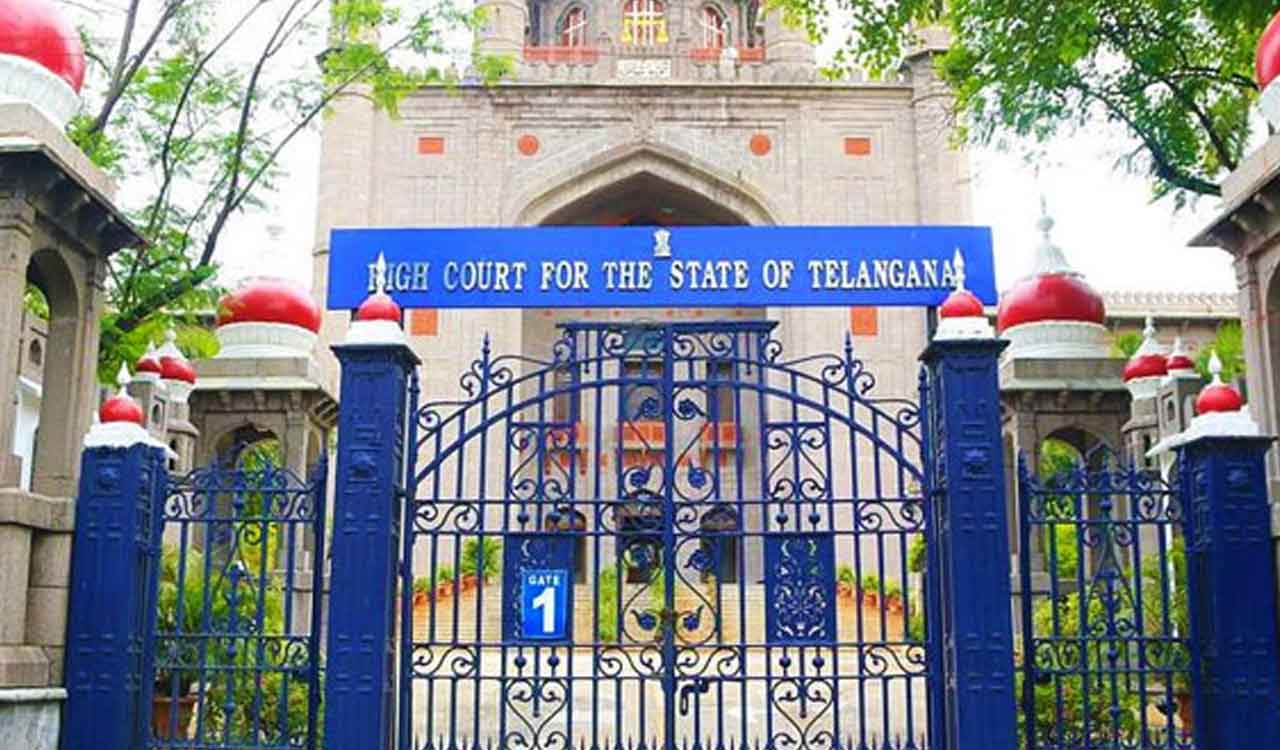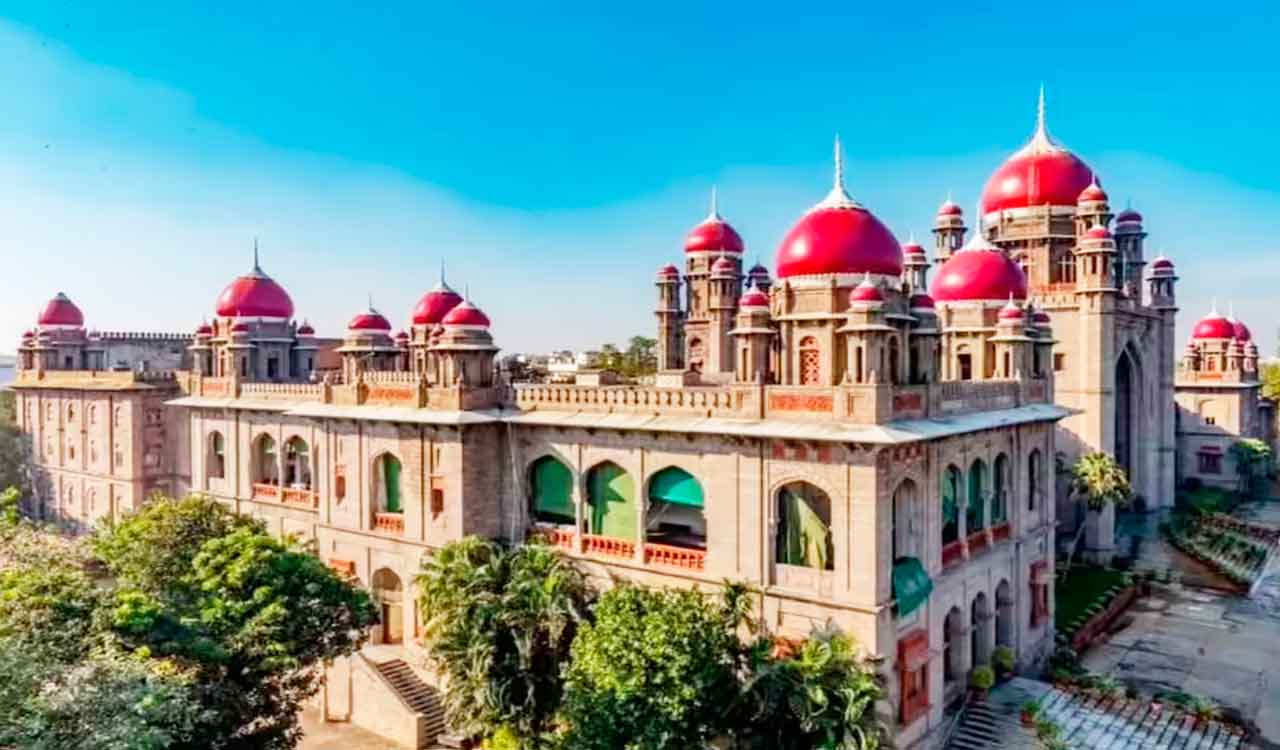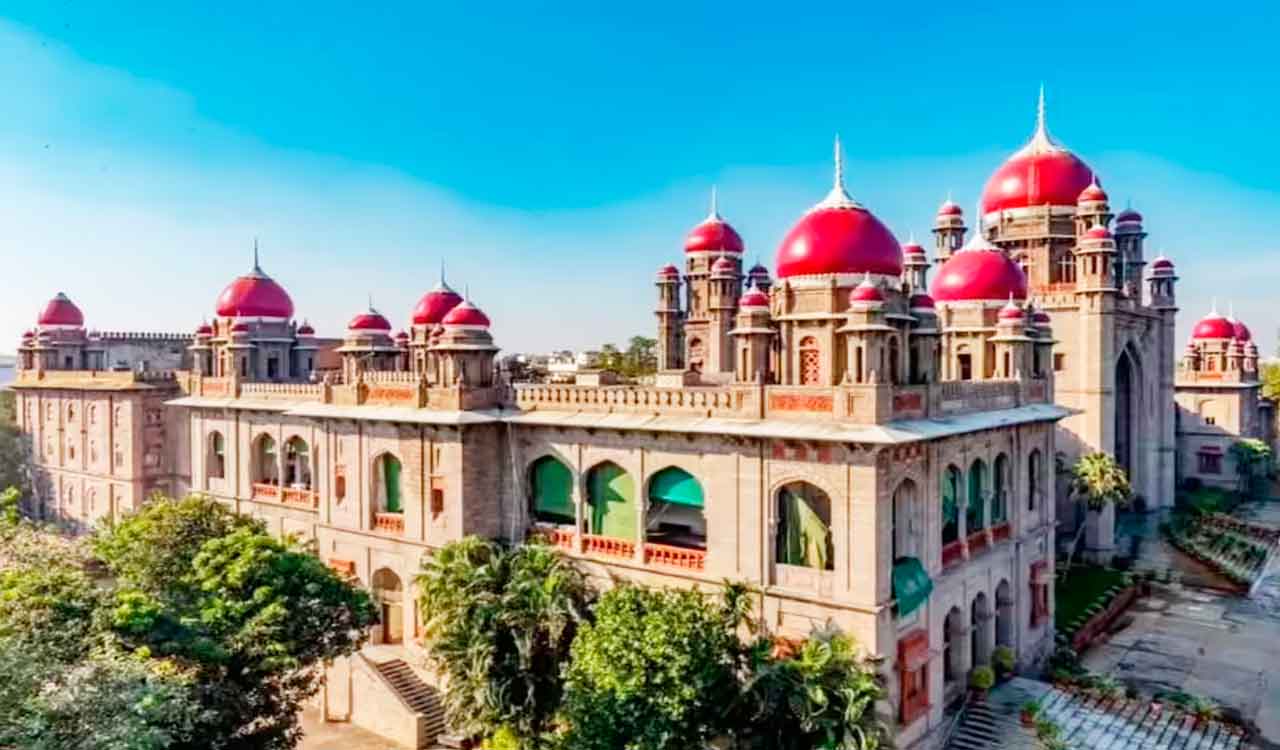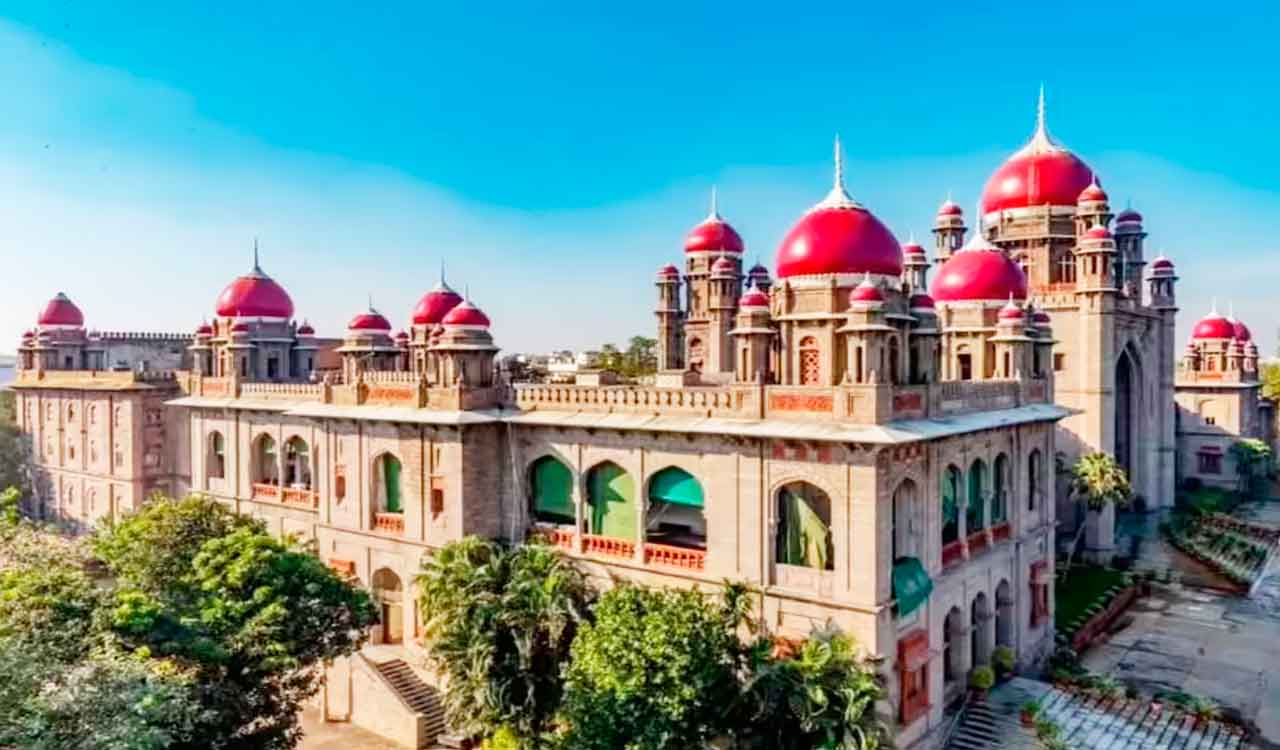BC Reservations: Telangana HC adjourns hearing to Thursday
The Telangana High Court heard extensive arguments challenging the State’s decision to raise BC reservations to 42 percent for local body elections. Petitioners cited constitutional limits and lack of data, while the State defended its move citing legislative consensus and welfare powers.

By Legal Correspondent
Hyderabad: The Telangana High Court on Wednesday heard a marathon session of arguments in the batch of writ petitions challenging the increase in BC reservations to 42 percent vide G.O.Ms 9 of 2025 in the State for the upcoming local body elections. The division bench comprising Chief Justice Aparesh Kumar Singh and Justice GM Mohiuddin posed a barrage of pointed questions to the State government on whether the triple test was followed, whether public objections were considered and whether the Governor’s assent had been obtained for the pending Reservation Bill.
After hearing both sides, the Advocate General sought an adjournment to continue the State’s submissions. The matter was accordingly posted to Thursday at 2.15 pm for further hearing.
Earlier, appearing for the petitioners, senior advocate Vivek Reddy argued that while the State issued a notification to proceed with elections, the law was clear that reservations could not cross the 50 percent ceiling. He pointed out that the 42 percent BC Reservation Bill, though passed by the Assembly, remained pending with the Governor.
The enhancement, he said, was made solely on the basis of a one-man commission report without satisfying the triple test requirement laid down by the Supreme Court. He maintained that the State failed to publish any empirical or scientific data to justify the increase.
“We are not asking for the elections to be stopped,” he said, “but the government cannot ignore the Supreme Court’s precedents. This very High Court had struck down the 34 percent BC reservations in 2018 on identical grounds,” he argued.
Senior counsel B. Mayur Reddy, appearing for one of the petitioners, contended that even if the government had the power to enhance reservations, the overall ceiling of 50 percent must remain inviolable. He stressed that the 50 percent limit was not merely a judicially evolved principle, but had its origins in the Constitutional Assembly debates.
He submitted that Dr. B.R. Ambedkar, during the debates, had cautioned that if reservations were to substantially increase- say, to 70 percent, it would leave only 30 percent for the general category. Such an imbalance, he observed, would directly violate Articles 15(1) and 16(1) of the Constitution, which mandate that the State shall not discriminate against any citizen on grounds only of religion, race, caste, sex, or place of birth. Reddy submitted that the opinion of Ambedkar was considered in the Maratha Reservation Case.
Mayur Reddy further argued that political reservations, unlike those in education or employment, cannot be extended beyond the prescribed limit. “There is no scientific data to justify the 42 percent reservation,” he said.
“The government claims it is based on a BC caste census, but that report has not been disclosed. The SC and ST reservations are based on the 2011 census, has that population increased or decreased? The government has no data. How can BC reservations be fixed without taking into account the population of SCs and STs? This very Court had struck down similar 34 percent BC reservations in 2018. We are not against elections but they must be held constitutionally,” he said.
On behalf of the State government, Senior Advocate Abhishek Manu Singhvi argued that the election schedule had already been notified, and by settled precedent, courts should not interfere once the electoral process begins. He produced the election notification before the Bench and urged the court not to grant any interim stay. Singhvi said the BC Reservation Bill was unanimously passed by all political parties in the Assembly.
“It is not proper to stay Government Order No. 9,” he submitted. “The government acted upon the BC Commission’s report and is empowered to take welfare measures for the people. The Constitution does not expressly fix a 50 percent limit on reservations; this principle allows exceptions when supported by strong social and empirical justification.”
He also criticized the prolonged inaction of Governors under Article 200, observing that several bills passed by elected legislatures across the country are kept pending indefinitely. “Some Governors are neither approving, rejecting, nor returning bills, thereby paralyzing governance. In this case too, the Governor has kept the BC Reservation Bill pending for over 6 months, preventing the government from implementing the will of the legislature,” Singhvi argued.
Speaking for the bench, the Chief Justice posed specific questions to Singhvi, asking if the inaction of the Governor had to be considered as deemed consent, why was the bill not notified in an extraordinary gazette? He also asked why an ordinance was issued if there was a deemed assent for the bill. Singhvi answered the bill only notified reservations, the ordinance was to implement it to panchayats alone.
Justice Mohiuddin questioned if the data collected during the socio-economic survey and consequent commission report was published for public opinion and objections in a transparent manner. Singhvi said the exercise was made to educate the legislature enabling it to take a policy decision and not administrative decision, and as such no public opinion was required.
Related News
-
Dark-web syndicates wage low-cost war on Indian judiciary
26 seconds ago -
Andhra horror: Suspect in minor girl’s rape, murder found dead
39 mins ago -
Bandh observed in Kyathanpalli; heavy police deployment at Balka Suman’s residence
42 mins ago -
Four children suffer burns after drum filled with chemicals explode in Bengal’s Canning
47 mins ago -
PM Modi set to visit TN twice in March as NDA gears up for Assembly polls
48 mins ago -
Hyderabad: Christians observe Ash Wednesday with solemn masses
48 mins ago -
Three cheetah cubs born at Kuno National Park, India now has 38 of them
1 hour ago -
Adivasis’ Self-Confidence: The Transformational Legacy of Potlapally Kamala Manohar Rao
53 mins ago




